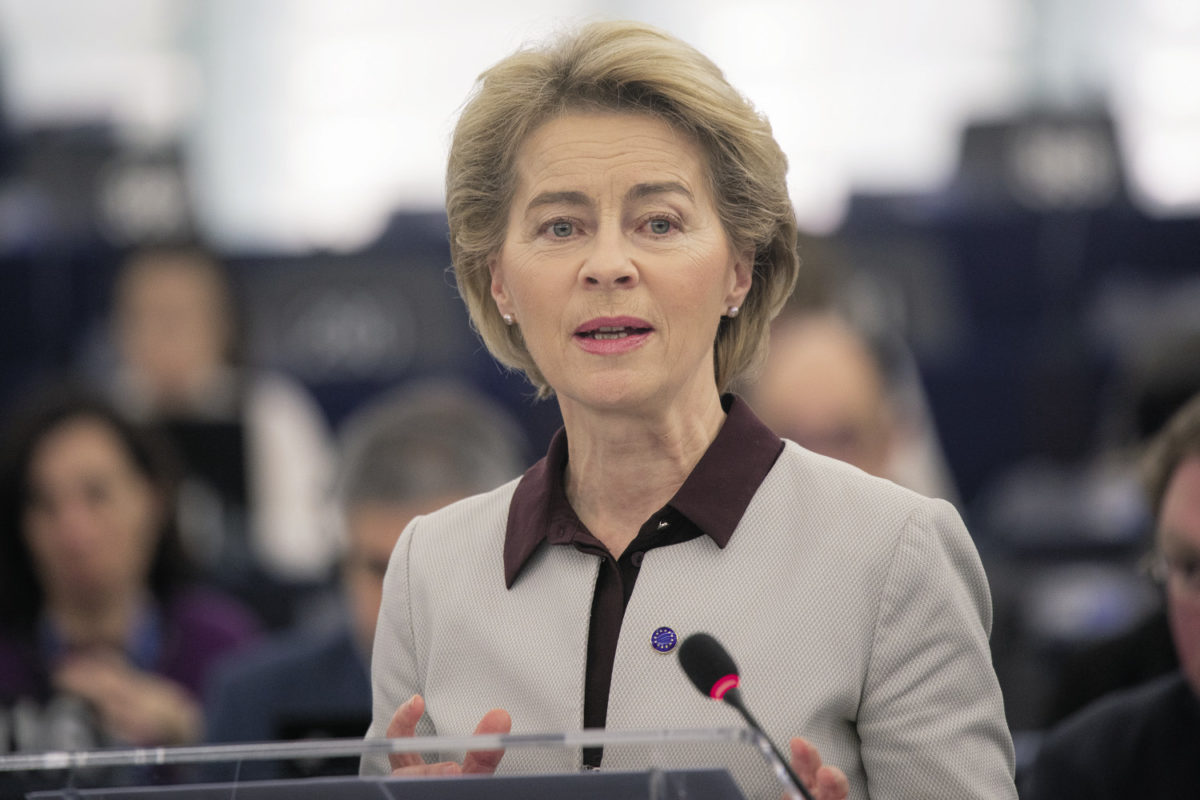Europe's lengthy and controversial debate over whether or not to place a cap on gas prices shows no signs of finding a swift solution.
The EU grudgingly accepted the decision of Spain and Portugal in April to opt for a €40 ($39.63)/MWh price gap on gas used for electricity generation. However, the European Commission itself continues to vacillate.
EC President Ursula von der Leyen put her support behind a price cap on gas as a “temporary solution” in October. However, another U-turn revealed itself in a “non-paper” circulated by Brussels in late October.
This “Non-Paper – Policy Options to Mitigate the Impact of Natural Gas Prices on Electricity Bills” instead argues for a decoupling of electricity prices from gas prices, and suggests that a price cap on gas would increase already stressed demand.
“In the current context, such an increase would risk worsening the already difficult situation,” the non-paper said.
This decoupling would see a system of tenders and long-term contracts for producers of renewable and nuclear energy. The non-paper says the price of these contracts would be determined from the production costs of the technologies themselves. This system, the EC seems to think, will be supported by a short-term market for gas-fired power. Hence the hesitation to follow the “Iberian” method and set a price cap on gas.
The non-paper also warned that the impact of such a price gap would be disproportionate across EU member states. It argues those states most reliant on gas-fired power generation would face the highest costs for the subsidy, noting Germany, the Netherlands and Italy in particular.
On the other hand, states with comparatively less reliance on gas-fired power stations, notably France, would be the “biggest net beneficiary.”
A possible solution would be a scheme to redistribute the costs of the price cap amongst member states, but if a decision can't be made about the policy itself, one finds it hard to believe such a complicated scheme could be worked out any time soon.
Solar industry irate
SolarPower Europe has not taken kindly to this latest EC U-turn. In a statement, the industry body asked European Council President Charles Michel and EC President von der Leyen for “Quality and transparent decision-making with respect to long-term electricity market reform.”
SolarPower Europe CEO Walburga Hemetsberger said she understands the delicate complexity of the situation. However, she argues that it is “essential to keep the focus on the origins of the problem and tackle the root cause of the crisis: Europe's reliance on imported fossil fuels.”
Hemetsberger expressed grave concerns about the policy direction shown in the “non-paper” and makes it clear that the real problem is a “lack of sufficient investments in renewable energies. The only structural solution to this crisis is a massive and accelerated deployment of renewables and their efficient integration via storage or demand side response.”
A particular point of ire was “the suggestions to move all new inframarginal technologies (particularly solar and wind) outside of the market and into mandatory Contracts for Difference (CfDs).” The SolarPower Europe CEO argues such a move would “constitute a complete U-turn” from years of progressively exposing renewables to the market.
Hemetsberger added that, while CfDs have been, and still are, very beneficial to drive the deployment of renewables, a move in this direction would only mean a return to central planning, auctions, and would potentially stifle investment.
Not only does Hemetsberger dismiss the merits of the arguments made in the “non-paper,” but suggests the “non-paper” itself is nothing more than a poorly timed distraction. “Changing the rules of electricity markets overnight, or even just feeding the debate with non-papers, has a chilling effect on investments and will slow down the energy transition.”
This content is protected by copyright and may not be reused. If you want to cooperate with us and would like to reuse some of our content, please contact: editors@pv-magazine.com.




I have read the non-paper. The arguments put forward by both the paper and Hemetsberger make no sense. First, places such as Spain have in place auctions and symmetric CfDs. The auction is the part where market forces come into play. Our monitoring of auction results suggests that most of the time LCOEs and auction prices are similar. Germany has (had?) “market premiums” which can be characterised as asymmetric CfDs. Which, sure enough, recently led to windfall profits for owners of German RES assets.
CfDs are only there to compensate RES sold into the wholesale market. Equally, RES could sell into the wholesale market at the auction price – which as already noted is the LCOE. One would suppose that Mrs Hemetsberger would be happy with RES developers getting an LCOE for their development? As for this: “a return to central planning, auctions, and would potentially stifle investment” is a gross exaggeration. In any case, EU countries already centrally plan auctions & I notice the ones in Spain remain very very popular – judging from what is reported by PV magazine. Germany has some problems – all related to permitting (& as reported on this site).
Changes to the existing wholesale market is urgently needed. These changes are trivial, would reduce wholesale prices by 50%, would have zero impact on the return on renewable assets, whilst at the same time stripping out the large scale windfall profits being made by many Solar Europe members. But perhaps that is the problem – some RES players have got used to making very large profits, at the expense of EU citizens.
For the avoidance of doubt, the above points are supported by a growing number of people within the European Commission & particularly those in DG Competition, DG Justice and a couple of other DGs. I’d suggest that Mrs Hemetsberger might want to keep that in mind when talking to them.